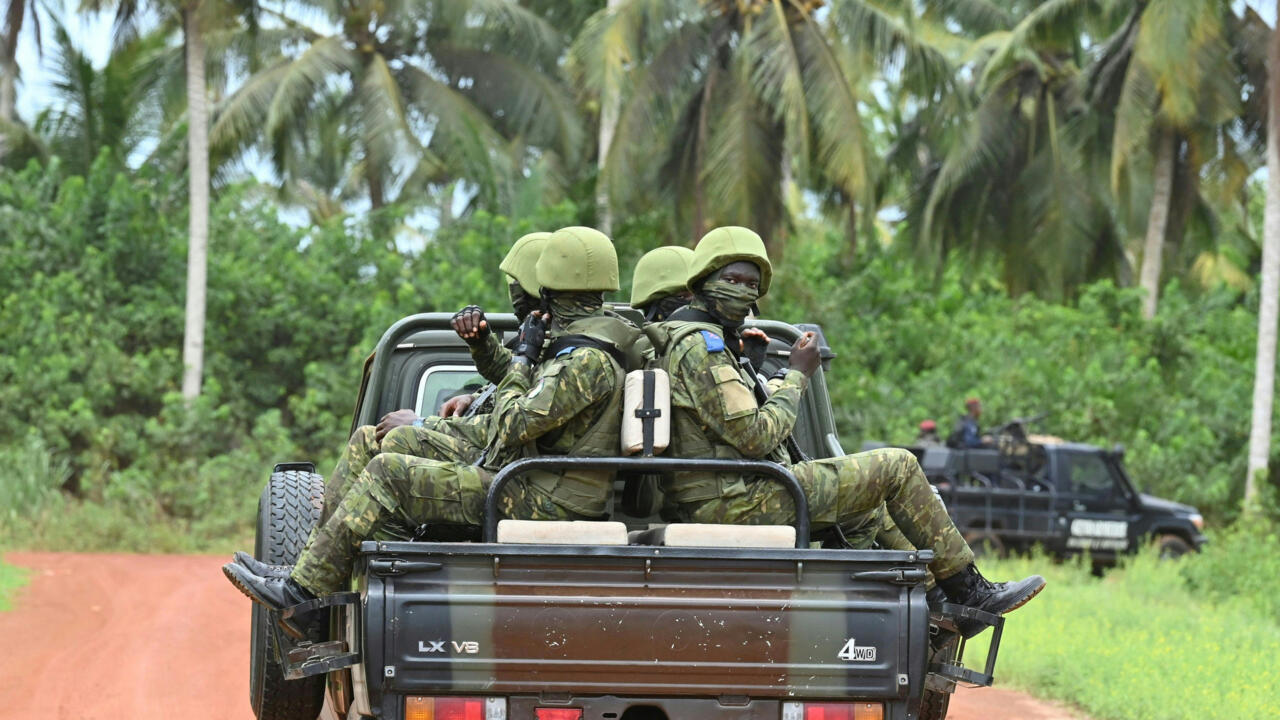
Ivorian soldiers drive on the back of a vehicle outside the International Academy for Combating Terrorism (AILCT) in Jacqueville in Ivory Coast on June 10, 2021. - The creation of the AILCT in a West Africa where several countries are plagued by jihadist attacks - Al-Qaeda in the Islamic Maghreb (Aqmi), Islamic State (EI), Boko Haram - had been formalized in November 2017 by French President Emmanuel Macron and Ivorian President Alassane Ouattara, on the sidelines of a summit between the African Union (AU) and the European Union (EU) in Abidjan. (Photo by Issouf SANOGO / AFP)
In a decisive step towards environmental protection, a two-day national workshop convened customs officers and trade inspectors in Bondoukou to strengthen their capacity in identifying and controlling ozone-depleting substances.
Organised by the National Ozone Office (BNO) in partnership with UN Environment, the event took place from July 22 to 23 and focused on enforcing regulations under the Montreal Protocol, which Côte d’Ivoire ratified in 1992.
The workshop aims to equip frontline agents working at borders and trade checkpoints with the necessary knowledge to detect and intercept controlled substances such as Hydrochlorofluorocarbons (HCFCs), whose use and import are strictly regulated to protect the fragile ozone layer.
Presiding over the opening ceremony, Gbongbo Kouadio André, the prefect of Bondoukou, underscored the critical nature of the mission: “This battle, given the harmful effects of these products on the ozone layer, is a fight for life. Every inspection carried out resonates as an act of planetary preservation.
Your mission is great. Every seizure contributes to the healing of our atmosphere. The future of our planet depends on your determination.”
Odile Kouassi, interim national coordinator of the ozone project, highlighted the historical damage to the ozone layer since the 1970s, caused largely by chemicals related to cooling and refrigeration. She emphasized the global commitments under the Vienna Convention and the Montreal Protocol to phase out harmful substances, noting the particular priority of phasing out Freon 22 — a widely used refrigerant in air conditioning systems — which must be reduced by 67%.
Ms. Kouassi further stressed, “Training and informing border and market officials so that they can identify and remove these harmful products from circulation is crucial.”
Throughout the workshop, approximately thirty customs officers and commerce inspectors engaged in comprehensive modules covering national and international regulations, substance identification including HCFCs, HFCs, and hydrocarbons, customs clearance procedures, and the use of specialized detection equipment. The programme also included practical exercises, an awareness film, and concluded with certificate presentations.
This initiative forms part of the HCFC Management and Elimination Plan (HPMP), overseen by the Ministry of the Environment, Sustainable Development and Ecological Transition, reaffirming Côte d’Ivoire’s commitment to environmental sustainability and global ozone protection efforts.



